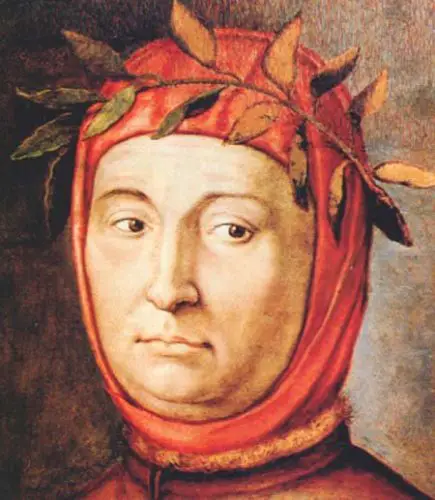According to Freud’s model of the mind, our consciousness is divided into 2 parts: the conscious mind and the subconscious mind. The conscious mind takes up only 10 percent; and our much larger subconscious is a blank slate when we are born. Throughout our lifetime, that slate is filled with patterns derived from our conscious thought and knowledge absorbed from others and the environment. Since the subconscious mind is 90% of our overall mind, whatever is in our subconscious forms our character, which then determines what we will accomplish in life.
The strong influence of external stimuli on the development of the subconscious means that changes in general attitudes, ideals, or prevailing wisdom (the “environment”) have significant impacts on the character, and therefore the actions and achievements, of individuals living in those times. The Renaissance and Reformation were absolutely crammed with such changes to the intellectual environment, and the rise of Humanism specifically may have altered attitudes about human nature and influenced the general psyche in a way that was key to later development and progress.
One of the fundamental tenets of Renaissance Humanism, as expressed by Petrarch, is that God gave humans intellectual and creative potential that was meant to be used. Humanism in that era also emphasized the responsibility of humans in developing themselves and promoting the race as a whole. Finally, as part of the “ad fontes” movement, the ancient Greek concept of Eudaimonia was probably becoming prominent, convincing people that the search for and creation of happiness and well-being was an important purpose of life. The spread of these ideologies would have significantly impacted the minds and characters of those who learned them, especially younger people whose subconscious minds were still being filled and developed.
Consider the impact this type of teaching would have on a person, in contrast with the previously dominant church doctrines. Rather than being told their individual life didn’t matter and salvation in the next life is the only thing for which they had to hope and work, someone growing up in the high Renaissance would start to internalize feelings of self-worth and agency. During the Reformation, things got even better: rather than the dogma that having wealth is a sin, Calvinists taught that material prosperity is evidence of God’s favor, motivating people to work hard and advance themselves financially.
In a discussion during the salon activity about how Renaissance and Reformation ideologies laid the foundation for the spectacular economic growth of later centuries, Joe pointed out how, in many cases, it’s not circumstances that change our mindset but rather our mindset that allows us to change our circumstances. I think the rise of Humanism during the Renaissance is a history-altering example of this. Humanism changed people, and people changed the world.
The strong influence of external stimuli on the development of the subconscious means that changes in general attitudes, ideals, or prevailing wisdom (the “environment”) have significant impacts on the character, and therefore the actions and achievements, of individuals living in those times. The Renaissance and Reformation were absolutely crammed with such changes to the intellectual environment, and the rise of Humanism specifically may have altered attitudes about human nature and influenced the general psyche in a way that was key to later development and progress.
One of the fundamental tenets of Renaissance Humanism, as expressed by Petrarch, is that God gave humans intellectual and creative potential that was meant to be used. Humanism in that era also emphasized the responsibility of humans in developing themselves and promoting the race as a whole. Finally, as part of the “ad fontes” movement, the ancient Greek concept of Eudaimonia was probably becoming prominent, convincing people that the search for and creation of happiness and well-being was an important purpose of life. The spread of these ideologies would have significantly impacted the minds and characters of those who learned them, especially younger people whose subconscious minds were still being filled and developed.
Consider the impact this type of teaching would have on a person, in contrast with the previously dominant church doctrines. Rather than being told their individual life didn’t matter and salvation in the next life is the only thing for which they had to hope and work, someone growing up in the high Renaissance would start to internalize feelings of self-worth and agency. During the Reformation, things got even better: rather than the dogma that having wealth is a sin, Calvinists taught that material prosperity is evidence of God’s favor, motivating people to work hard and advance themselves financially.
In a discussion during the salon activity about how Renaissance and Reformation ideologies laid the foundation for the spectacular economic growth of later centuries, Joe pointed out how, in many cases, it’s not circumstances that change our mindset but rather our mindset that allows us to change our circumstances. I think the rise of Humanism during the Renaissance is a history-altering example of this. Humanism changed people, and people changed the world.
Sources:
https://en.wikipedia.org/wiki/Petrarch
https://en.wikipedia.org/wiki/Humanism#Humanistic_psychology
Image: https://www.flickr.com/photos/pere/523019984





